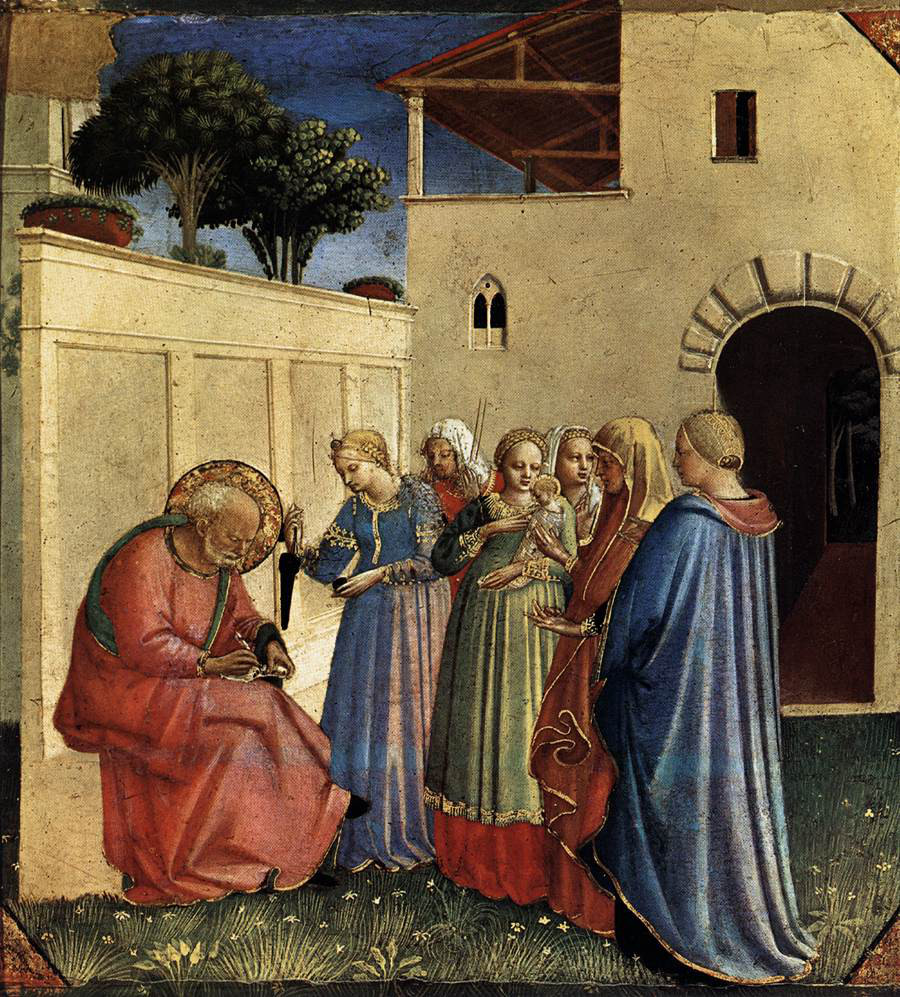You Shall Call Him John
A name is more than that by which
we are called. There has always been within the name a kind of magic and
romance. In America, where I am from, I have always considered it the most
beautiful image to talk of a young man or woman as going out into the world,
“to make a name for themselves.” In other words, to earn a reputation. We now
speak with a kind of reverence the names of those who have changed the course
of history: Plato, Augustine, Einstein; we remember the names of those who have
impacted us: personally, culturally, and throughout time.
 |
| The Naming of John the Baptist Fra Angelico, circa 1435 |
In the time of Christ, as well as
at other times, this importance of a person’s name was not only a matter of
reputation and remembering. Within a name is expressed a person’s culture,
identity, people, and place of belonging. We can hear this very point in the
words of Elizabeth’s neighbors and relatives: “there is no one among your
relatives who has this name.” You can almost hear the little note of conceit within
their tone; that particular voice family and friend use when they think their
loved one is acting like an idiot. You could see the neighbors throwing up
their hands with a shake of the head, and the relatives deciding who should
tell Zechariah so he could “talk some sense” into his wife.
But Zechariah cannot talk sense; he
cannot talk. A tablet is brought, and the scene unfolds like any great play.
There is a moment where the nonsense of the women, and the writing of the men,
come together to form a kind of gospel. “And all were amazed.” His name is
John.
There is a third and vital meaning to a name, especially a name surrounded by signs and miracles. As the rumors spread, and the story gained its special power across the Judean hills, the people began a question which would surround and enshroud both him, and the one who was to come after: “What, then, will this child be?” It is a question worthy of asking. This child, who began as the object of Judean folk gossip, would become among the greatest of the ones before Christ. He would become second only to Mary as a figure of intercessory power. His name would be invoked on cities and kings. And, perhaps greatest of all, he would be the man to pour out the baptismal water over the one who would redeem the world.



Comments
Post a Comment